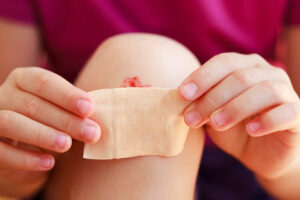 When dealing with an infected wound, understanding the healing process is crucial to managing expectations and ensuring effective care. Healing times vary significantly based on the severity of the infection, the body’s response, and overall health conditions. While there’s no universal timeline for recovery, familiarizing yourself with the stages of wound healing can provide valuable insights into what to expect during recovery.
When dealing with an infected wound, understanding the healing process is crucial to managing expectations and ensuring effective care. Healing times vary significantly based on the severity of the infection, the body’s response, and overall health conditions. While there’s no universal timeline for recovery, familiarizing yourself with the stages of wound healing can provide valuable insights into what to expect during recovery.
The Time It Takes for an Infected Wound to Heal
The healing duration for an infected wound depends on multiple factors, including the individual’s health, the type of infection, and how promptly treatment began. Generally, the healing process involves several stages, each playing a vital role in restoring skin integrity.
Swelling
Following the initial injury and bleeding, the body’s immune response kicks in, leading to inflammation and swelling. This not only helps protect the area but also aids in flushing out impurities. The wound might secrete a fluid mixture that includes blood components, which is a positive sign that nutrients and oxygen are reaching the affected area. Typically, this stage lasts from 2 to 5 days.
Regrowth of Tissue in the Infected Wound
Around the fifth day post-injury, tissue regrowth commences. For minor wounds, it takes about three weeks for the regeneration of blood vessels and the replacement of damaged cells with new, healthy tissue. This phase is critical as it lays down the foundation for scar tissue development and strengthens the wound.
Scarring
The final phase of the healing process is scarring. Scar formation can take significantly longer, ranging from several months to two years, depending on the wound’s depth and size. During this time, the new tissue may appear shiny and feel tight, with the original scab falling away to reveal pink or red skin underneath. Itching during this phase is common as the area continues to heal internally.
Factors Influencing Healing Time
- Severity and Size of the Wound: Larger and more severe wounds take longer to heal and may require medical intervention.
- Presence of Infection: Infections can complicate the healing process and might lead to increased tissue damage or further health issues.
- Individual Health Conditions: Underlying health conditions like diabetes or immune system disorders can slow down the healing process.
- Care and Treatment: Proper wound care, including timely medical treatment, appropriate use of antibiotics, and regular cleaning and dressing changes, is crucial for healing.
When to Seek Professional Help
If you notice signs of infection such as increased pain, redness, swelling, or foul-smelling discharge, it’s essential to seek professional medical attention. Prolonged healing times and worsening symptoms can indicate complications that require advanced treatments.
Conclusion
Understanding the healing stages of an infected wound helps in managing the care process effectively. If you have an infected wound, or if the wound does not heal as expected, contacting experts like DFW Wound Center is critical. With specialized care, you can ensure proper healing and reduce the risk of complications.
Have an infected wound? Don’t wait for complications to develop. Contact DFW Wound Center today at 972-665-6292 (Plano), 972-318-2383 (Lewisville), or 972-607-9643 (Irving) and 972-223-3266 (DeSoto). Visit us online to schedule your appointment and get clear, detailed treatment options tailored to your needs. Get expert care and support throughout your healing journey.
Contact us
Schedule an appointment
with our specialists by contacting us or calling our:
